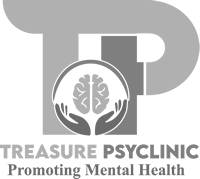Psychoeducation is a therapeutic approach that involves educating individuals about mental health conditions, coping strategies, and the treatment process. It aims to empower clients and their families with knowledge and skills to better understand and manage psychological issues. Here’s a detailed overview:
Purpose
-
Understanding Mental Health: Helps individuals comprehend their mental health conditions, symptoms, and
 how they impact daily life.
how they impact daily life. -
Coping Strategies: Teaches practical skills and techniques to manage symptoms and improve functioning.
-
Informed Decision-Making: Equips clients with information to make informed choices about their treatment options.
-
Reducing Stigma: Aims to normalize mental health discussions and reduce stigma associated with mental illness.
Key Components
-
Education on Conditions: Information about specific mental health disorders (e.g., anxiety, depression, bipolar disorder), including causes, symptoms, and effects.
-
Treatment Options: Overview of various treatment modalities, such as therapy, medication, and lifestyle changes.
-
Coping Mechanisms: Techniques for managing stress, anxiety, and other symptoms, including mindfulness, relaxation techniques, and problem-solving skills.
-
Communication Skills: Strategies for effective communication, particularly in family dynamics or when discussing mental health with others.


